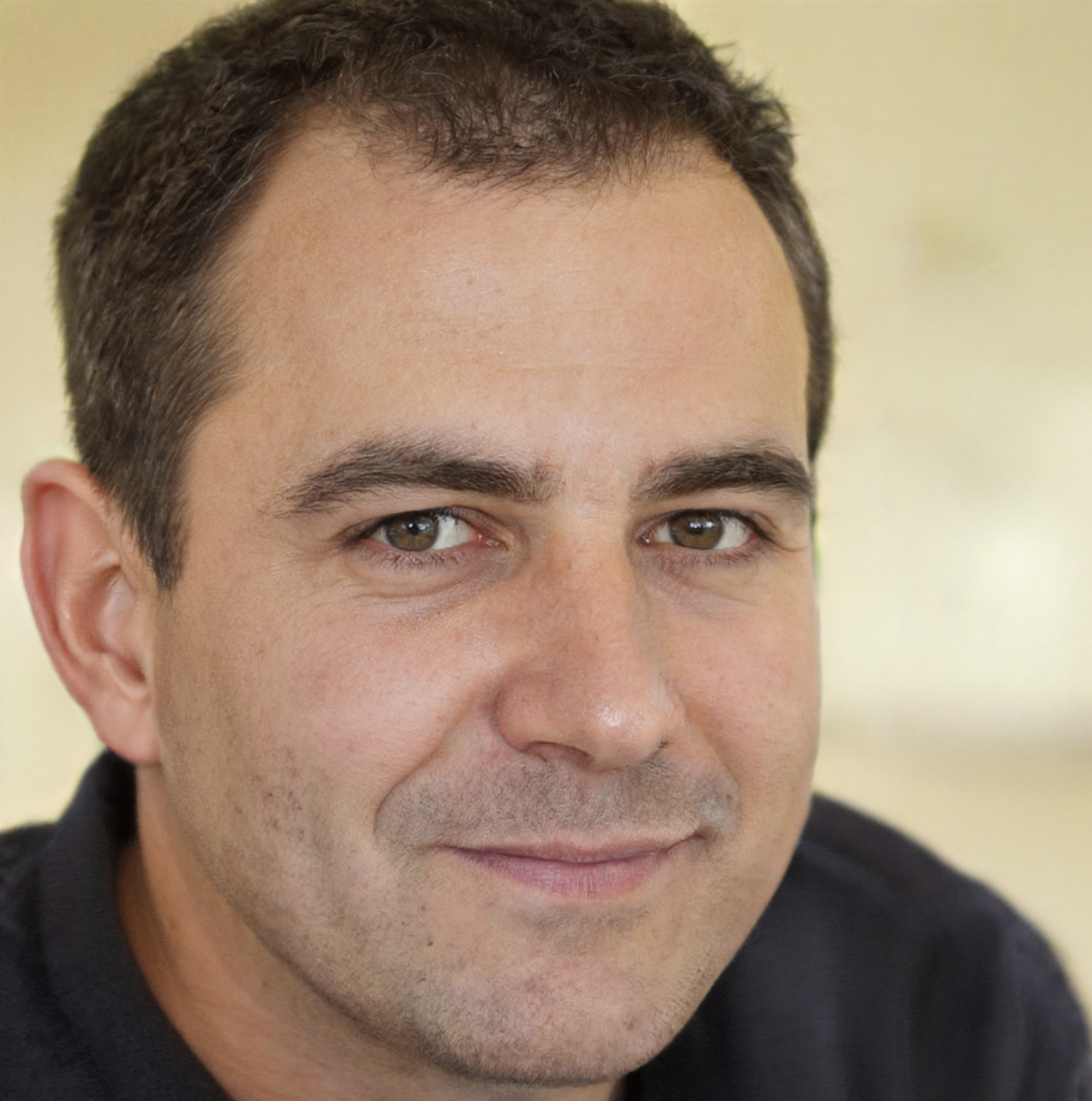Is Biblical Number 7 God's Favorite Number?
Biblical number 7 is very important in the biblical sense, so if you decide to read this article, you will get to know what this number means.
Author:Mia ThompsonReviewer:Matteo CaravetaJan 12, 2024172.7K Shares2.7M Views

Biblical number 7appears over 700 times in the Bible, making it a very important number. The number seven connotes concepts such as completion and perfection, exoneration and healing, and the fulfillment of promises and oaths, from the seven days of Creation to the many "sevens" in Revelation.
While the Bible is full of examples of the number seven being used, this article focuses on the three categories in which the number appears frequently.
Significance Of Biblical Number 7 - Completion And Perfection
In the Bible, the number seven frequently represents completion or perfection. According to Genesis, God created the heavens and the Earth in six days and rested on the seventh day (Genesis 1; 2:1-2). Based on this cycle of work and rest, God instructs us to work for six days and then rest on the seventh day, which God designated as the holy Sabbath (Exodus 20:9-11).
The number seven also represents completion at the Crucifixion, when Jesus spoke seven statements from the Cross in agony at the end of His earthly duties:
“Father, forgive them, for they know not what they do” (Luke 23:34).
“Truly, I say to you, today you will be with me in Paradise” (Luke 23:43).
“Woman, behold, your son!” Then he said to the disciple, “Behold, your mother!” (John 19:26-27).
“My God, my God, why have you forsaken me?” (Matthew 27:46).
“I thirst,” (John 19:28).
“It is finished” (John 19:30).
“Father, into your hands I commit my spirit!” (Luke 23:46).
When asked how we should pray in the context of perfection, Jesus gave seven suggestions (Matthew 6:9-13).
In response, Jesus gave us the Lord's Prayer, which is without a doubt the best way to pray because the words came directly from Christ!
Seven petitions are included in the Lord's Prayer in particular:
Hallowed be thy name; come, Thy Kingdom; Thy will be done on Earth as it is in Heaven; give us this day our daily bread; forgive us our trespasses as we forgive those who trespass against us; lead us not into temptation; and deliver us from evil.
When Jesus used seven metaphors to describe Himself as the way to salvation and the perfect reward for a good deed, He was speaking in a figurative sense. Jesus tells us He is:
The bread of life (John 6:35); the light of the world (John 8:12); the gate to salvation (John 10:9); the good shepherd (John 10:11); the resurrection and the life (John 11:25-26); the way, the truth, and the life (John 14:6); and the vine (John 14:6) (John 15:5).
Furthermore, King David used the number seven to describe the flawless nature of God's words when he wrote that the Lord's words are "like gold refined seven times" (Psalm 12:6). Similarly, when the prophet Isaiah described the coming Messiah, he listed seven characteristics that the Savior would possess (Isaiah 11:1-2).
Significance Of Biblical Number 7 - Exoneration And Healing
The number seven is also associated with forgiveness and healing. According to Deuteronomy, the Israelites were to cancel all debts owed to one another and free their slaves every seventh year (Deuteronomy 15:1-2, 12).
When Peter asks Jesus how many times we should forgive each other, Jesus responds, "seventy times seven" (Matthew 18:21-22). In that case, Jesus is not instructing us to forgive someone 490 times. Instead, Christ is instructing us to completely forgive one another, as His Jewish audience would have understood the emphasis on the number seven in this teaching to mean complete forgiveness.
The prophet Elisha used the number seven in the context of healing when he told Naaman the leper to bathe in the Jordan River seven times in order to be healed (2 Kings 5:9-10, 14). Furthermore, we see a connection between seven and healing in the seven healing miracles performed by Jesus on the Sabbath, or the seventh day of the week. On the seventh day, Jesus specifically healed the following seven people:
A man with a deformed hand (Matthew 12:9-13); A man possessed by an unclean spirit (Mark 1:23-26); Peter's mother-in-law with fever (Mark 1:29-31); A woman crippled by a spirit (Luke 13:10-13); A man with abnormal swelling of the body (Luke 14:1-4); A lame man by the pool of Bethesda (John 5:5-9); and A man born blind (John 9:1-7).
Significance Of Biblical Number 7 - Fulfillment Of Promises And Oaths
The number seven is also associated with the fulfillment of promises or oaths. Indeed, the Hebrew words for swearing an oath (shaba) and seven (sheba) both derive from the Hebrew word for satisfaction or fullness (saba).
In Genesis, God promises not to flood the Earth again and memorializes this promise with the rainbow, which is made up of seven colors (Genesis 9:8-15). We learn later in Genesis that Abraham swore an oath of ownership over a certain well of water (Genesis 21:22-31). Abraham fulfilled the oath with a gift of seven lambs and named the oath site "Beersheba," which means "well of the oath" or "well of seven."
Another example of seven's relationship with promises can be found in the Book of Joshua. God promised Joshua that He would demolish Jericho's fortified walls if Joshua and his army marched around the city six times in six days and seven times on the seventh day, with seven priests blowing seven trumpets. The walls of Jericho fell after Joshua precisely followed the Lord's commands, just as the Lord had promised (Joshua 6:1-20).
In the Book of Revelation, the number seven is also associated with promises. You read, in particular, of seven letters addressed to seven churches (Revelation 2-3). Christ assures each church community in the letters that if its members repent and live according to Jesus' instructions, each community will receive its promised reward.
Furthermore, the number seven appears frequently in Revelation's discussion of God's promise to save those whose names are written in the Book of Life and to condemn those whose names are not (Revelation 20:15; 21:1, 27). Seven groups of seven herald the fulfillment of this divine promise: seven seals, seven trumpets sounded by seven angels, and seven bowls of God's promised wrath carried by seven angels (Revelation 6, 8, 11, 16).
Biblical Number 7 FAQs
What Does The Number 7 Represent Spiritually?
The number 7 is a powerful angel number that represents a person's inner wisdom, self-awareness, intuition, and mysticism. All of those elementsare necessary for spiritual maturation and progress. In numerology, this is a number that represents the ideal balance of spirituality and practicality.
Why Is 7 The Number Of God?
The number seven appears in a number of typological patterns throughout Hebrew scripture, including: seven days of Creation leading to the seventh day or Sabbath (Genesis 1) Seven-fold vengeance visited on Cain for the murder of Abel (Genesis 4:15).
What Does 777 Mean In Hebrew?
The numbers"777" are used in the Holy Bible's book of Revelations to identify the people whom God chooses as his own. Satan is depicted as attempting to forge this number, which is known as "666."
What Does 777 Mean In Love?
The number 777 denotes a spiritual awakeningas well as an influx of new energies into your life. The number 7 is frequently associated with the crown chakra, which is the seventh chakra. This chakra is located in the center of your head, at the top of your head. It is in this location that spiritual energy can enter the body in a concentrated manner. This surge of energy can feel different for each person. It may feel like a stream of energy flowing down the spine to some, while it may feel more like a gentle waterfall sensation of energy flowing down and around the body to others. Spiritual energy is always present around and within us, so when you see the number 777, you can be confident that the angels are assisting you in connecting with this divine spiritual energy.
Final Words
With God creating our world, Earth, on the sixth day and finally resting on the seventh day, Adam being created on the seventh month of the Hebrew calendar, the original Bible being composed of seven books, the word "create" being used seven times in Genesis, and seven angels, seven trumpets, seven seals, seven bowls, and more being mentioned in the book of Revelation, it's no surprise that the biblical number 7 holds high biblical significance.
After all, it represents balance, perfection, and foundation. Some people even consider the number seven to be the number of God, so treat it with reverence.
Now that you understand the significance and deeper meaning of the number seven, share your knowledge with others as you break bread with them and teach them the hidden and disguised sayings of the Almighty God.

Mia Thompson
Author
Mia Thompson is a versatile writer at Kansas Press, delving into a range of topics including news, spiritual exploration, astrology, and numerology. With a passion for delivering insightful and informative content, Mia's articles provide readers with valuable perspectives and thought-provoking insights into these intriguing subjects.
She is dedicated to creating content that resonates with readers and fosters a deeper understanding of complex topics.

Matteo Caraveta
Reviewer
In the heart of Rome, Matteo Caraveta was born under the influence of the number 9, a symbol of universal love and completion. His path into numerology was illuminated during a life-changing encounter on his 21st birthday, a date that numerologically signifies the beginning of a new cycle, under the mystical skies of Sedona, Arizona. This experience, marked by the convergence of powerful numerical energies, reshaped his destiny.
Matteo's numerology practice is enriched with the vibrational essence of numbers, particularly the harmonious number 2, symbolizing balance and partnership, which guides his consultations. His most profound moment came when he used the energy of number 5, the emblem of dynamic change, to navigate a client through a tumultuous career shift, leading them to a path filled with purpose and prosperity.
Now, Matteo Caraveta stands as a beacon of light in the numerical maze, guiding souls with the wisdom of numbers, where every consultation is a step towards understanding the universe's grand design. His journey embodies the transformative power of numerology, making Matteo not just a numerologist, but a navigator of life's numerical currents.
Latest Articles
Popular Articles


